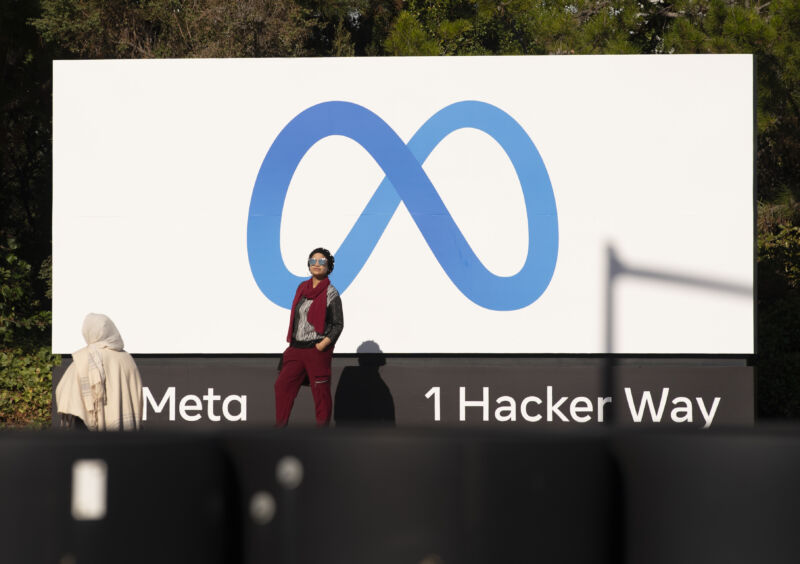
Thea-Mai Baumann had posted to Instagram using the @metaverse handle for nearly a decade when her account was disabled on November 2.
“Your account has been blocked for pretending to be someone else,” the app told her.
Baumann wasn’t exactly sure what had happened, but the timing was curious. The account block came just days after Facebook had announced its new name, Meta. CEO Mark Zuckerberg said the name reflected the company’s new focus on its vision of the metaverse, a virtual world meant to facilitate commerce, communication, and more. Baumann’s @metaverse handle was suddenly a hot commodity.
This account is a decade of my life and work. I didn’t want my contribution to the metaverse to be wiped from the internet,” Baumann told The New York Times. “That happens to women in tech, to women of color in tech, all the time.”
In 2012, when Baumann started Metaverse Makeovers, she grabbed the Instagram handle @metaverse to showcase her art and technology. The Australian had created an app that would display virtual holograms over her company’s fingernail designs. She envisioned making an entire line of clothing and accessories that would be virtually augmented. After five years, funding ran dry and she began to use her Instagram account to promote her other work.
Baumann’s @metaverse account went relatively unnoticed over the years, attracting fewer than 1,000 followers. Then Facebook changed its name.
On October 28, Zuckerberg announced the change in his Connect 2021 keynote, saying that the Facebook name “just doesn’t encompass everything we do.” Zuckerberg had been selling his idea of the metaverse for months, telling The Verge in an interview last summer that “the metaverse is a vision that spans many companies—the whole industry,” he said. “It’s certainly not something that any one company is going to build.”
Baumann, with her years of experience running a company based around and named after the concept, would seemingly be an ideal partner in that venture.
After Zuckerberg’s keynote, Baumann started receiving unsolicited messages on Instagram, including some that offered to buy @metaverse from her. One person delivered a warning, though: “fb isn’t gonna buy it, they’re gonna take it.”
It’s unclear whether Meta/Facebook had anything to do with Baumann losing access to her account. Baumann attempted to verify her identity with Instagram, but she didn’t receive a reply for weeks. She tried working with an intellectual property attorney to see what rights she had to get her account back, but she couldn’t afford their services.
Once a journalist got wind of the story, though, things changed. On December 4, two days after a New York Times reporter contacted Meta about the account, Baumann suddenly regained access to @metaverse.
“This account was incorrectly removed for impersonation, and we’ve now restored it,” Stephanie Otway, a Meta company spokesperson, told Ars. “We’re sorry that this happened.”
Baumann’s experience could have a chilling effect on companies’ and individuals’ willingness to participate on social media for fear of having their online identity arbitrarily seized. “Facebook has essentially unfettered discretion to appropriate people’s Instagram user names,” Rebecca Giblin, director of the Intellectual Property Research Institute of Australia at the University of Melbourne, told The New York Times. “There can be good reasons for that—for example, if they’re offensive or impersonating someone in a way that causes confusion.”
“But the @metaverse example highlights the breadth of this power,” Giblin said. Users “essentially have no rights.”
https://arstechnica.com/?p=1820222

